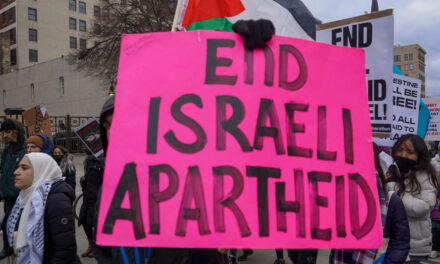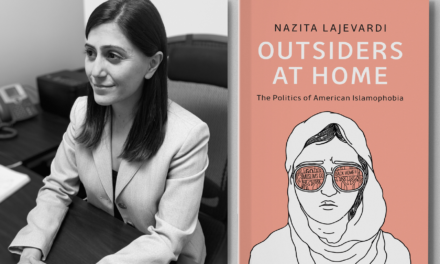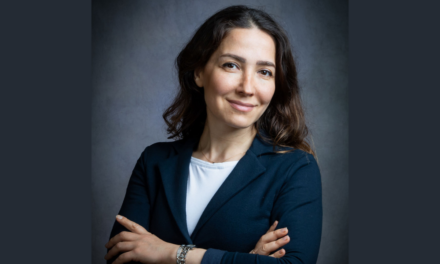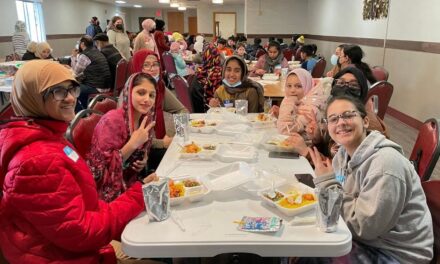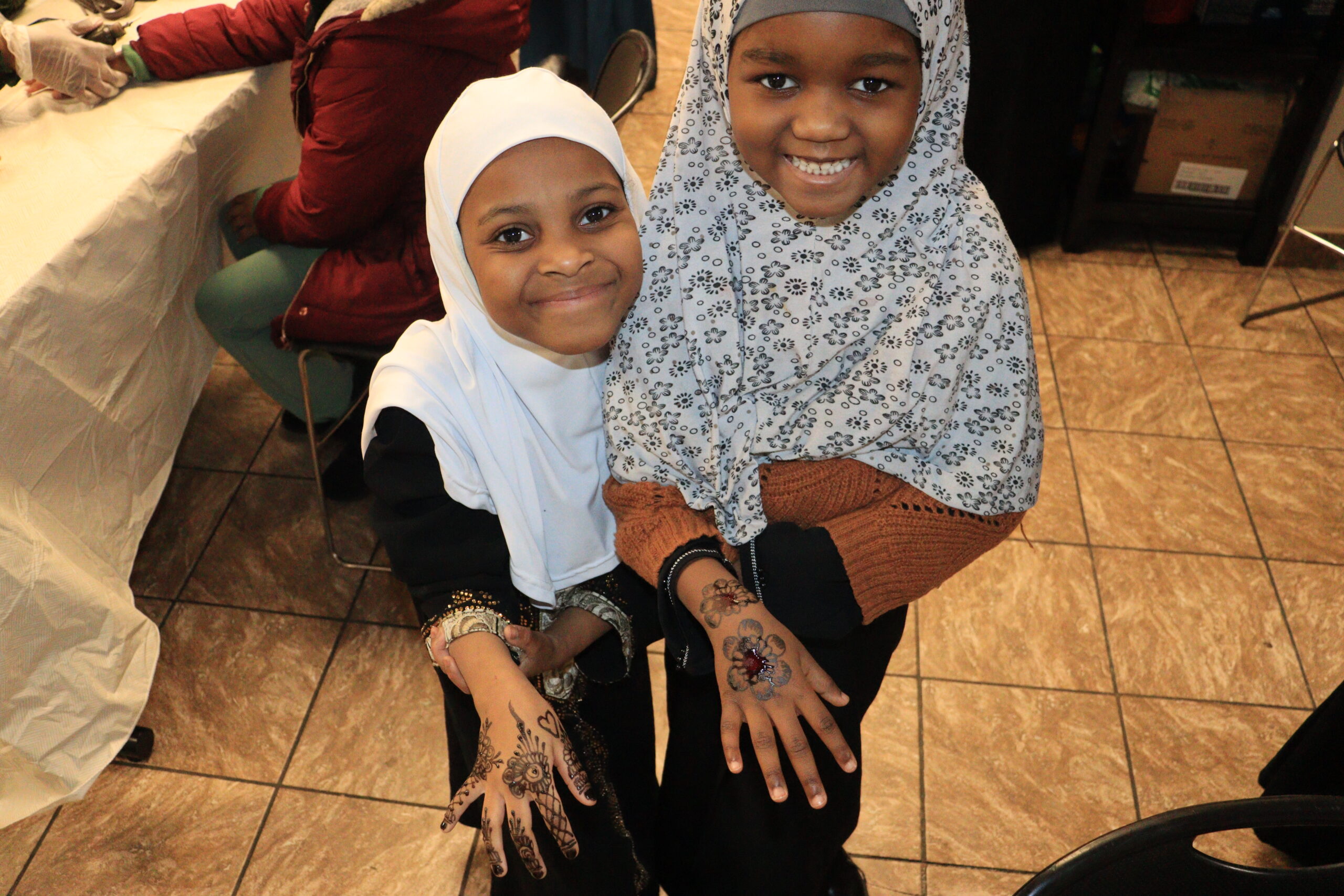
Photos by Fardowsa Mohamed
Milwaukee Dawah Center’s Henna & Hijab event brought girls and women together to celebrate the hijab.
Milwaukee Islamic Dawah Center, 5135 N. Teutonia Ave., practically buzzed Saturday with women and girls stopping in for its Henna & Hijab event.
Leaving a gray February day outside in the packed parking lot, they stepped into the Dawah Center’s main room, decked with a rainbow of hijabs, abayas and other modest wear. Two lines of tables displayed pastel pink, bright yellow, light and dark blue, olive green—you name it— hijabs, headscarves worn by many Muslim women to cover their hair.
Some hijabs would be given away in a raffle. Others were available for sale from two modest wear shops participating in the center’s event.
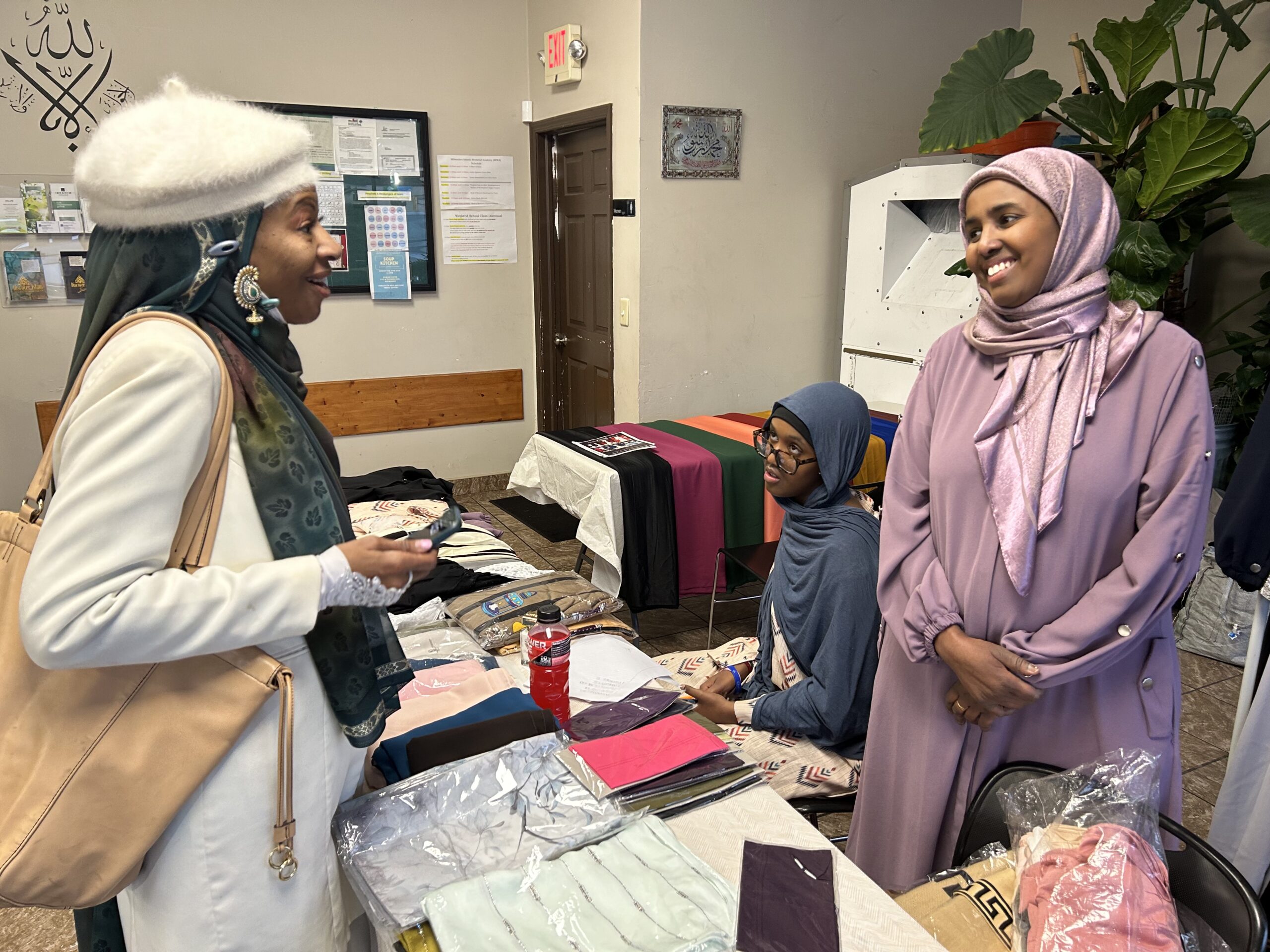
Ma’ati Bey (left) and Zahra Ali (right), both from Milwaukee, enjoy a chat about merchandise from Ali’s business, Barakah Modest Fashion.
At two tables, eager girls and a few women watched as henna artists painted elaborate designs with the plant-based dye on their hands. Others filled their plates at a buffet provided by the center and tried to find seats at other tables. Others mulled about, mingling with old friends and new.
“I was surprised (by the turnout),” said Fardowsa Mohamed of Milwaukee, who manages communication for the Dawah Center. She and her colleague Mako Shidad of Milwaukee, who studied fashion design at Mount Mary University, planned the event.
They aimed to celebrate the hijab, a head-covering “that is often demonized” in Western society, said Shidad. “To me, wearing it is, first and foremost, a worship of God.” It connects Muslim women “in a special spiritual bond we share,” she continued. “It reminds us of our self-worth and self-love.”
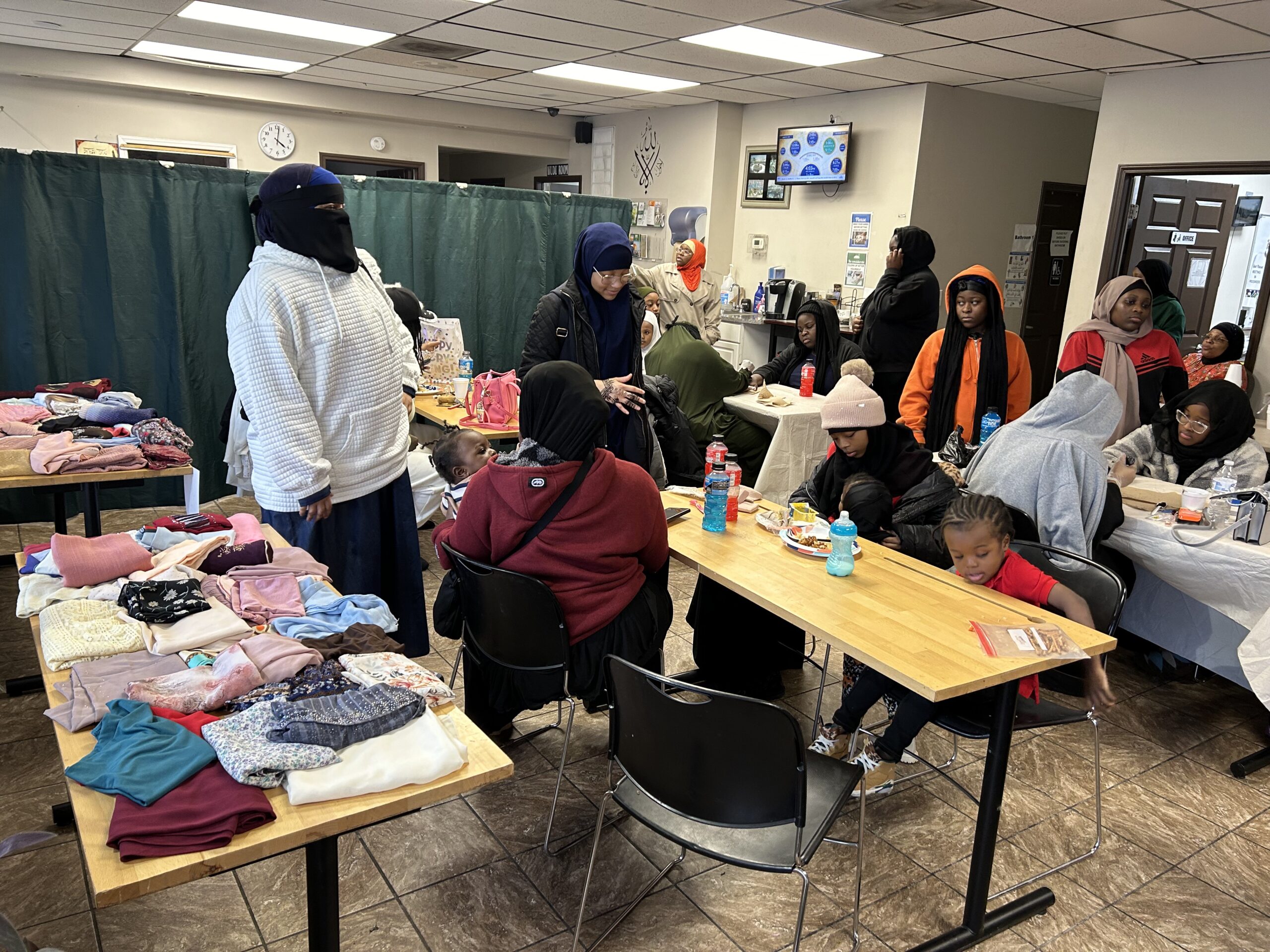
More than 50 women and girls attended Henna & Hijab Saturday at Milwaukee Dawah Center.
The month of February begins with World Hijab Day. “We knew we wanted to celebrate it by having women come together to celebrate their hijab and its beauty, especially with all that’s going on around the world,” Mohamed said. “A lot of people are struggling to wear their hijab. By standing together, we want to let girls know they’re not alone in this.”
Images of women wearing hijabs fill the media when there is conflict in the Middle East and make American Muslim hijabis (girls and women who wear hijabs) targets, she explained. Muslim women in a Milwaukee park were attacked in August and their hijabs ripped from their heads.
Milwaukee Islamic Dawah Center will host another hijab-themed, Cover Girls: Journey and Struggle with Self-love,” at 2 p.m., Saturday, Feb. 17.
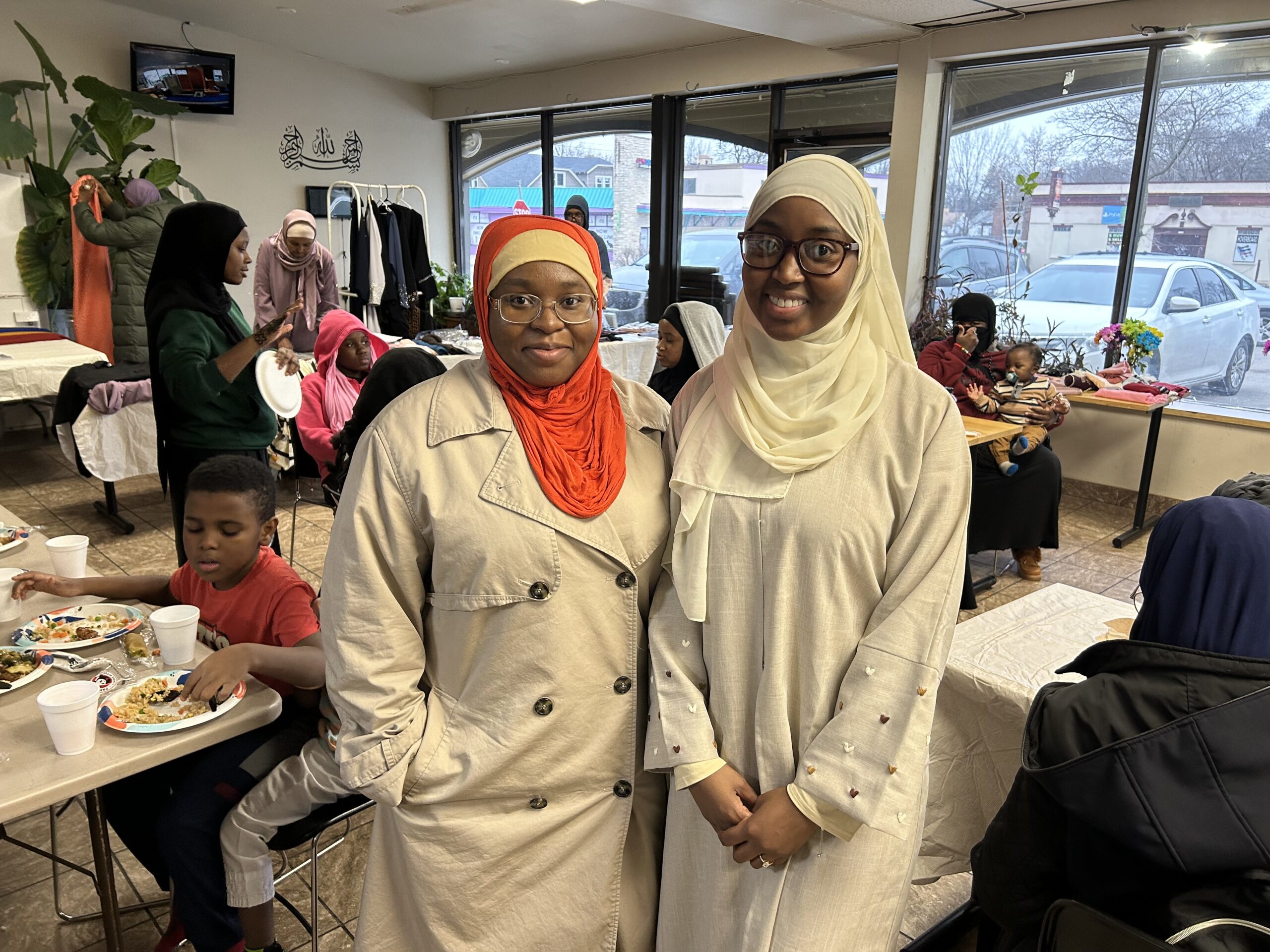
Mako Shadid (left) and Fardowsa Mohamed (right), employees of Milwaukee Islamic Dawah Center planned the Henna & Hijab event to help Muslim girls “know they are not alone.”
Henna & Hijab a hit
Henna & Hijab event proved to be very popular. At any one time, 50 people were present. With women and girls filling the main room and the prayer room, along with some leaving and new participants coming, getting a count was difficult.
The “sisters-only” event filled the Dawah Center Saturday from 2 to 7 p.m. “It was supposed to be over at 5:30 p.m. but lasted until 7 o’clock,” Mohamed said. “Everyone was enjoying themselves. It was just amazing.”
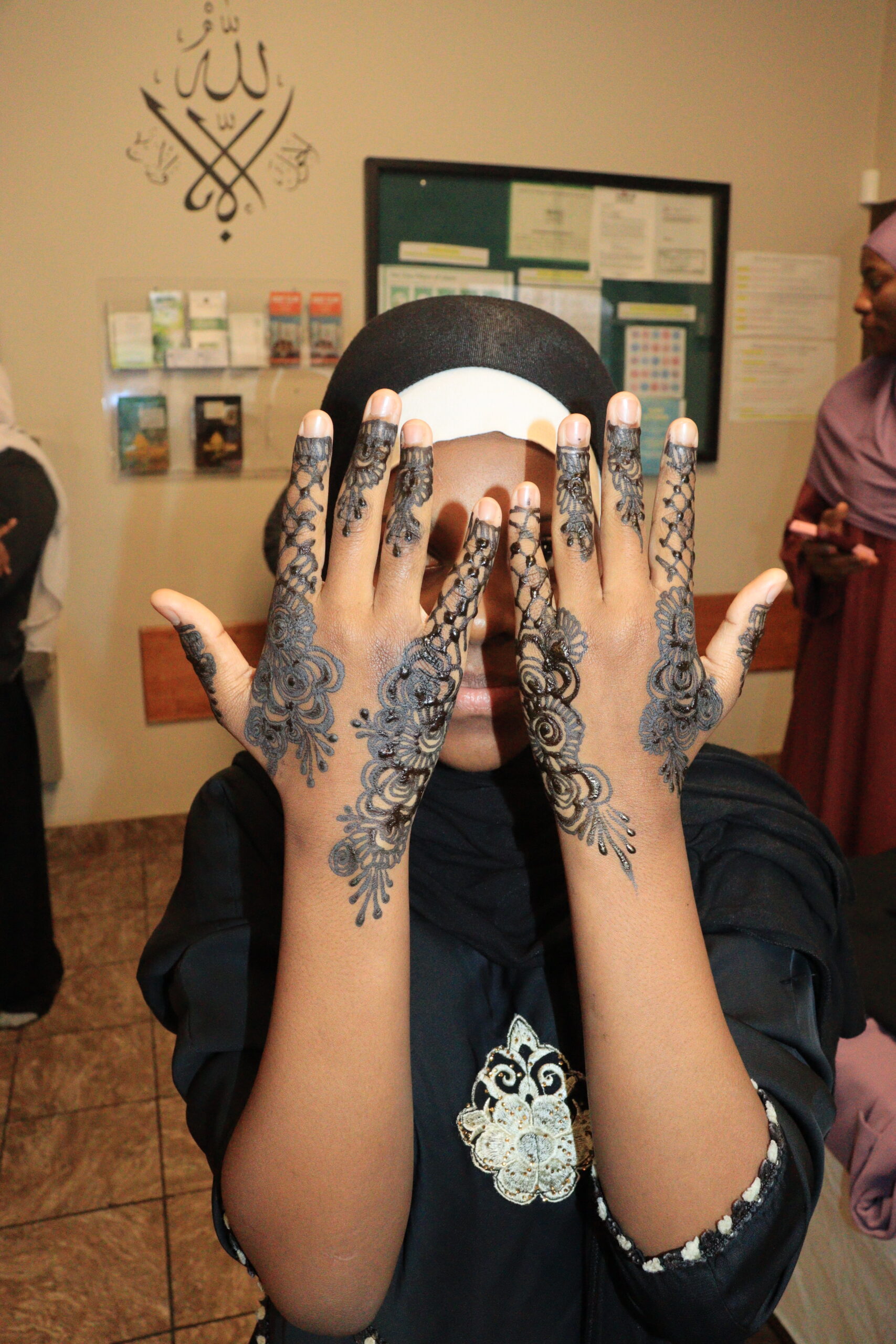
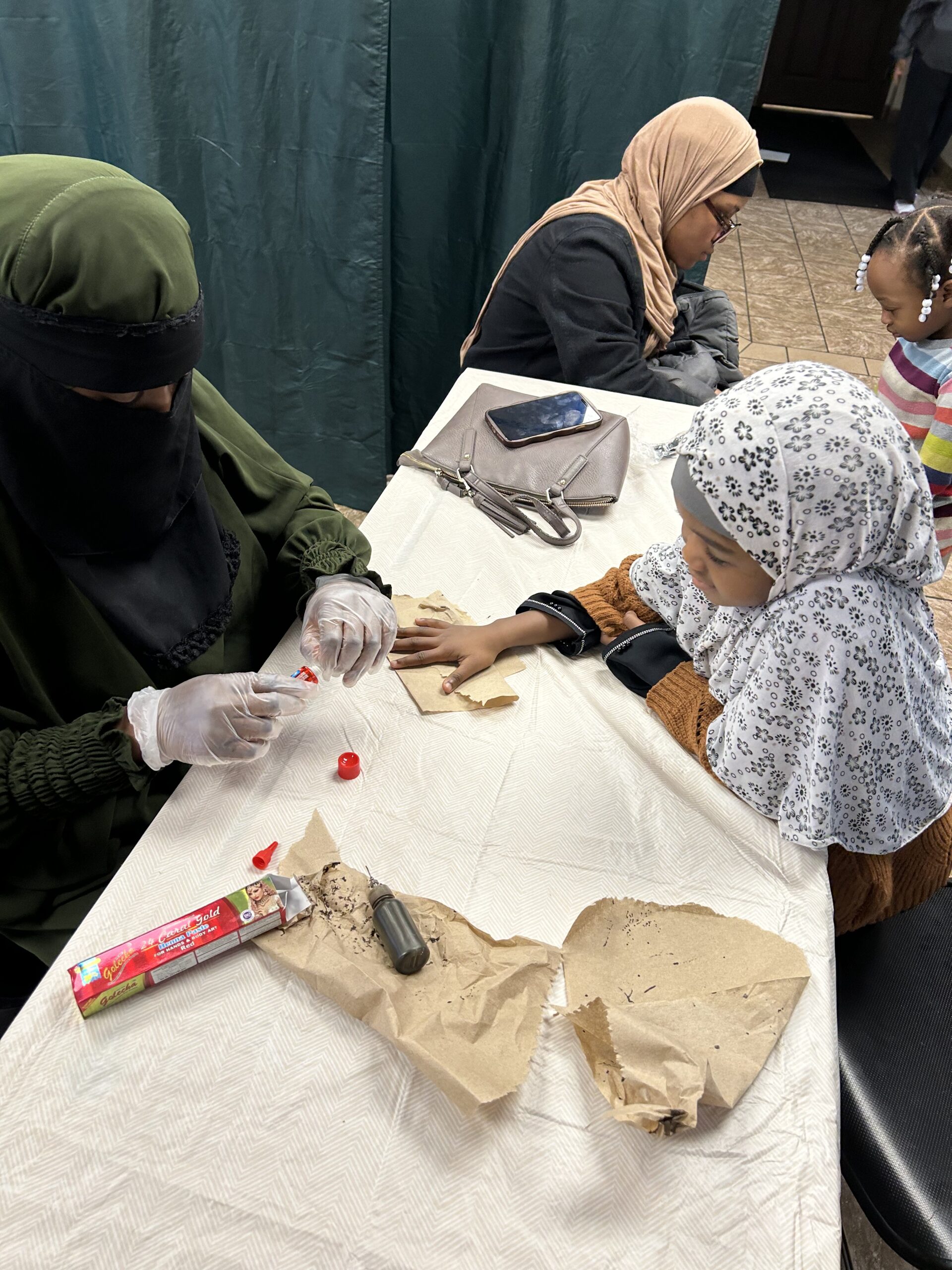
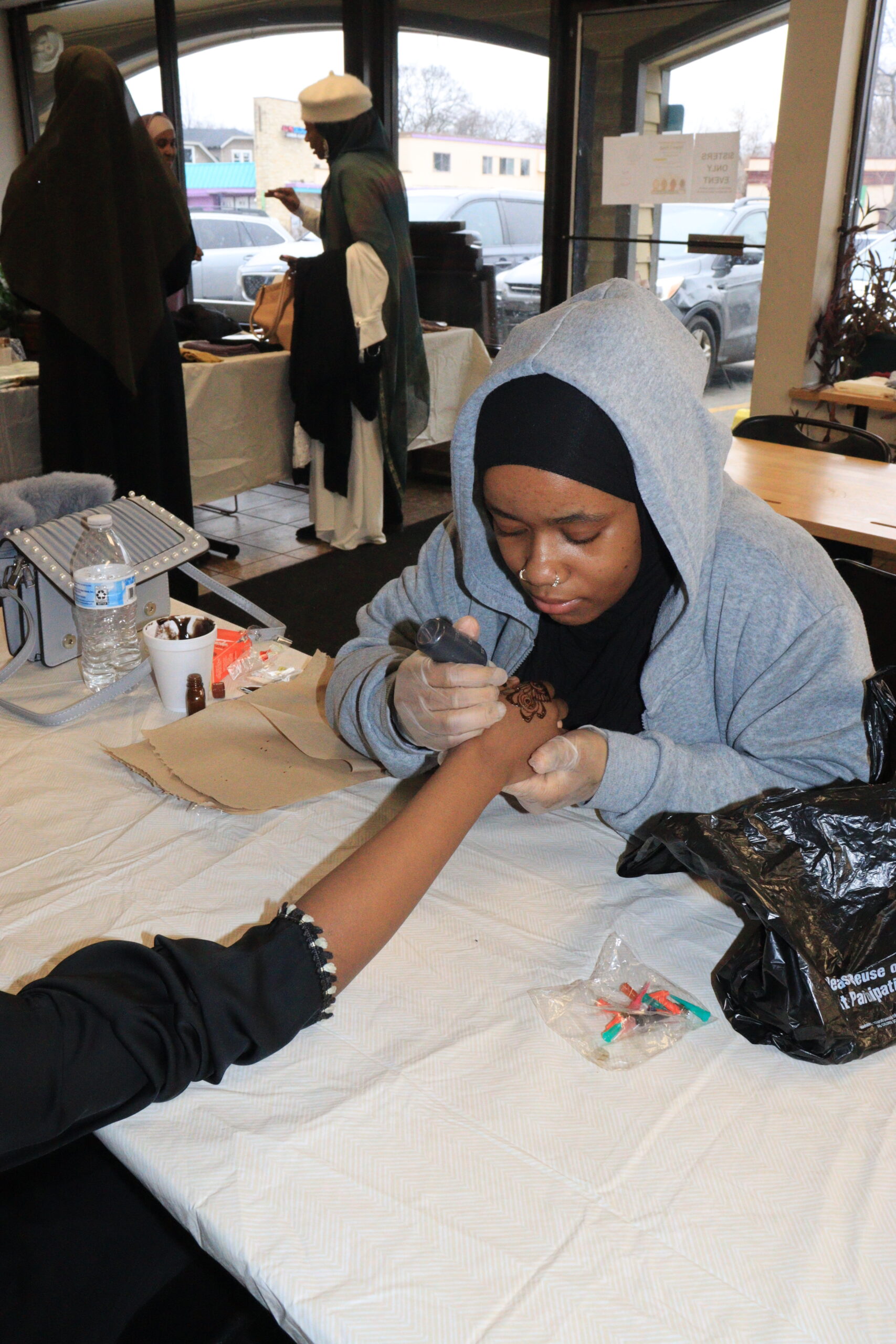

Henna artists Hawa Abdi and Mumina Ahmed, both of Milwaukee brought lots of smiles to young girls by decorating their hands with beautiful designs. Two modest-wear businesses displayed their merchandise: Styling with Herlie Orsh and Barakah Modest Fashion. Hijabs donated by community members were given away in a raffle-style drawing; entry in the drawing was free.
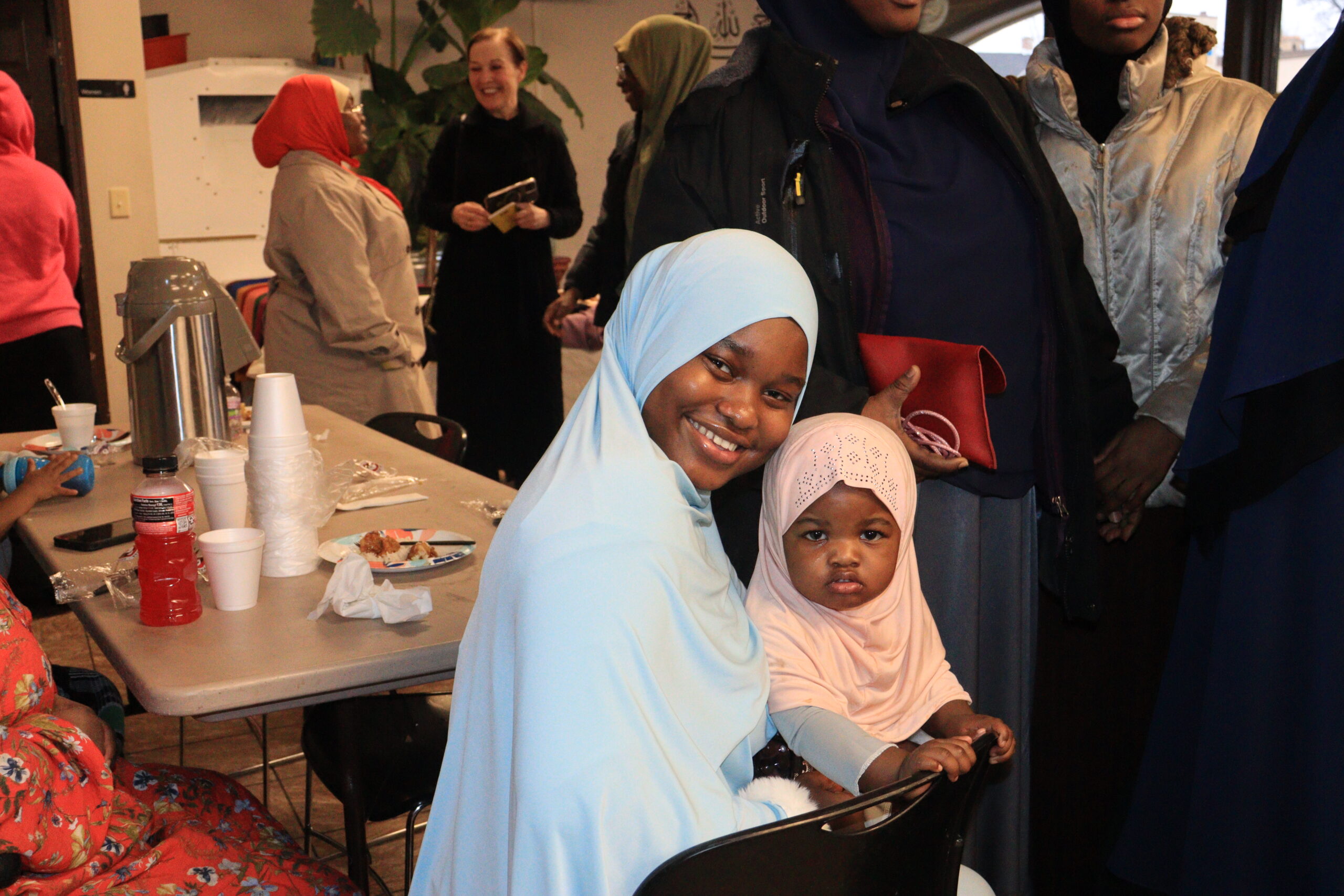
“A lot of the girls were super excited by the hijab give-aways. Everyone who participated won two,” Mohamed said. “They just loved the fact they could be in the masjid and it was a safe space for them to be themselves.
Many of the women attending said they appreciated the fellowship. Haleema Osho, a teacher from Nigeria recruited by Milwaukee Public Schools, just experienced her first Milwaukee winter, yet the “warmth” she misses is the sense of community back in Nigeria, she said. “Back home, we have a community of neighbors. Here you feel you don’t want to bother them.” For her, events at the Dawah Center offer an opportunity to connect with other women.
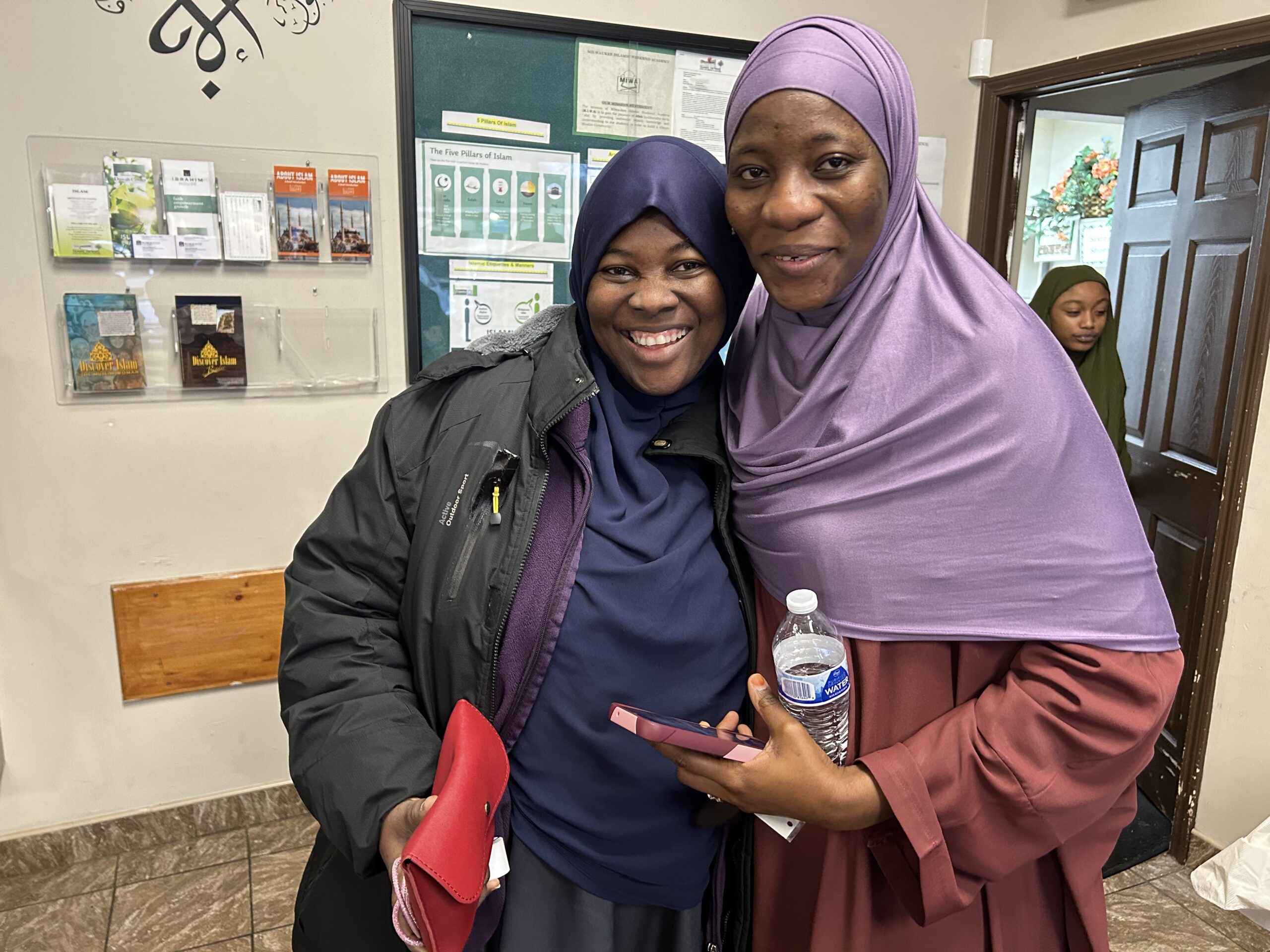
Haleema Osho (right), a Milwaukee Public School teacher, said she appreciated the chance to be with other Muslim women.
“There were a lot of people there I haven’t seen before,” noted Mohamed. “We need to do more like this to unite the sisters and like build a stronger bond.”
Sister Hadja (Hadja Gnalen Konate) of Milwaukee spontaneously gave a hijab tutorial, showing different styles of wearing the hijab. She invited women and girls to come up and showed them different ways to wrap and tie their hijabs.
“I like to show women easy ways to wrap their hijab,” Sister Hadja said, an immigrant from Guinea, West Africa. “As Africans, we didn’t have much and naturally did everything by ourselves. We have art in our hands.
“I love learning from people and teaching others,” she added. “My passion is to make things easy for people.”
Konate, who was a registered nurse in Guinea and spoke four languages, began wearing the hijab at 15, she said. “My father always wanted me to wear it but I didn’t at first because of society. People told me it was an Arab style, that I have to stay African. After I understood it is a gift of protection from God, that I shouldn’t wear it for my dad or anyone else, I wore it and started promoting it. I realized we needed to learn about our religion. It is a protection for both women and men from zinna (sin),” she said.
A revert (the Muslim word for “convert,” reflecting the idea they returned to the true faith) was learning to put on the hijab.”
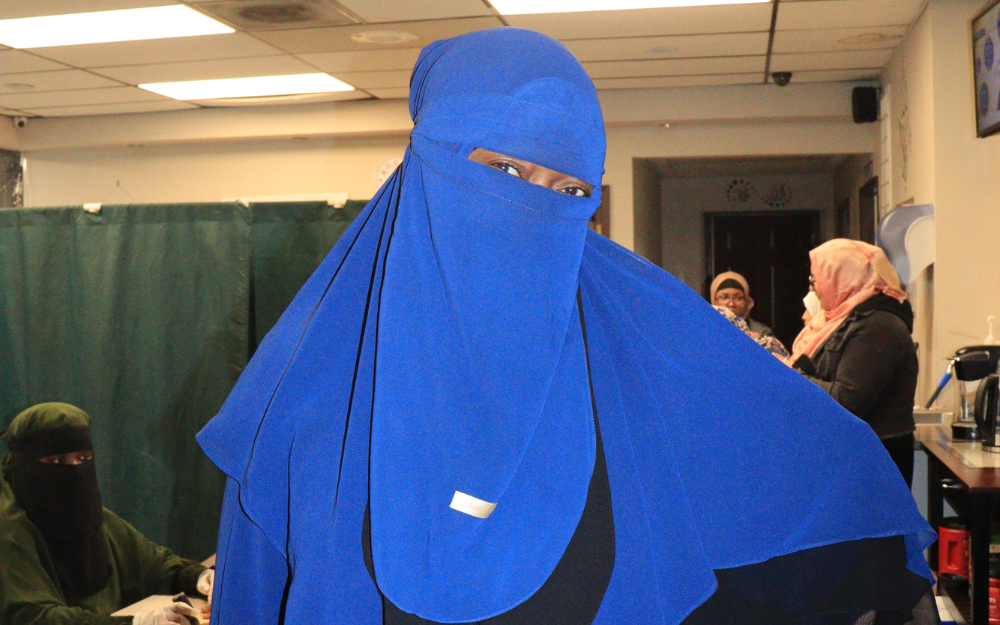
Sister Hadja, Hadja Gnalen Konate of Milwaukee, gave an impromptu hijab workshop, showing quick, easy and creative ways to wear hijab.
“I didn’t know she was a revert until someone said, ‘Welcome the sister to Islam!’” said Mohamed. Mohamed grew up in a family of hijabis and began wearing it herself as a child. She immigrated with her family from Somalia when she was 5 years old.
“I just grew up in it but as I got older and learned about the hijab and why I’m wearing it, that made me love the hijab even more,” she continued. “I learned we wear the hijab to cover our beauty so we’re not like showcasing our beauty to the world. And it just makes me feel I’m special.”
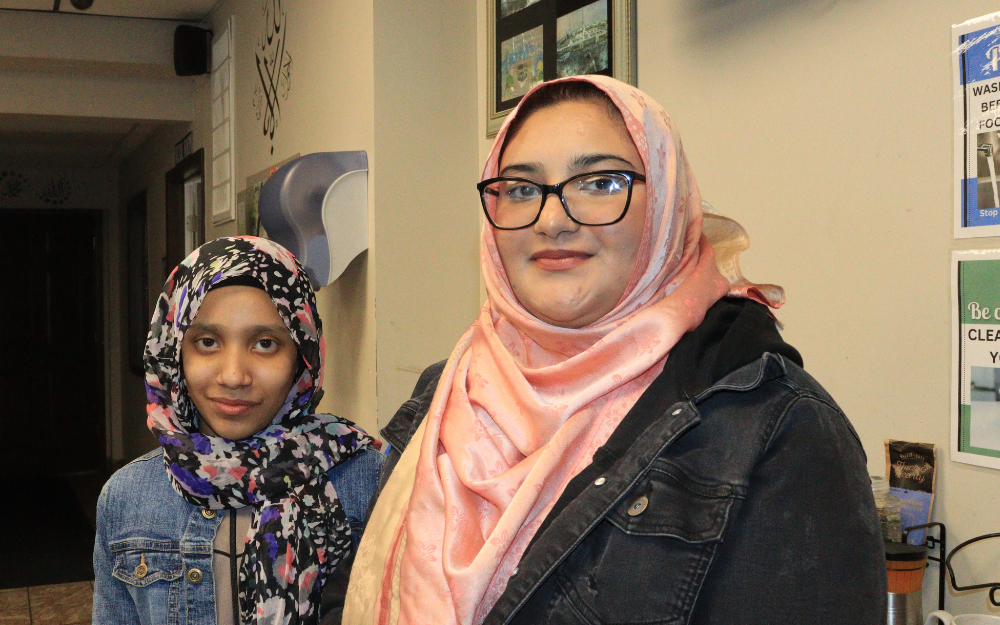
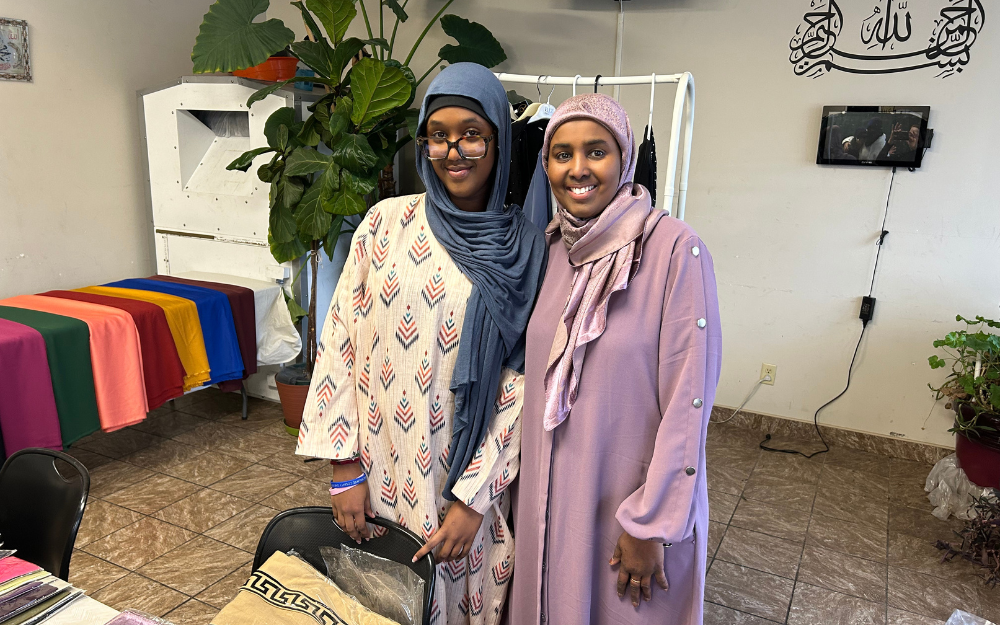
Zahra Ali (right) and her daughter Selwa Abdi, 14, displayed hijabs, abayas and prayer dresses from Abdi’s business, Barakah Modest Fashion.
